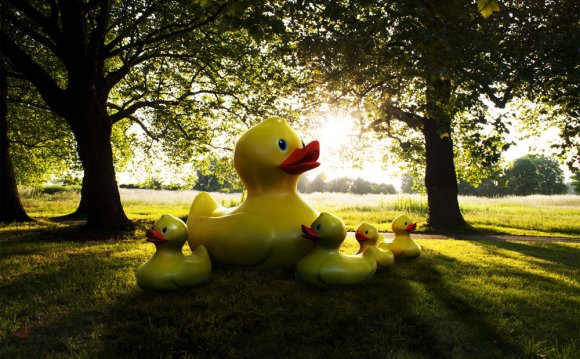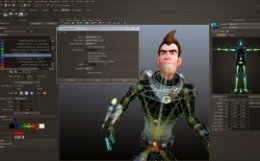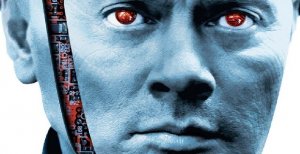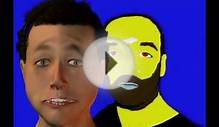
 Is the use of computers to establish computer animated graphics for special effects on motion pictures and video game graphics. CGI animation is applied not only in films like “Toy Story” and “Shrek, ” but also in virtual reality, theme parks, and scientific search. For those looking for an occupation or those who simply want to acquire a new hobby, CGI animation is an interesting, thrilling field with lots of room for expansion and development. It calls for costly devices and software. Considering that technology is ever evolving, you have to keep pace with new development if you want to excel in CGI animation.
Is the use of computers to establish computer animated graphics for special effects on motion pictures and video game graphics. CGI animation is applied not only in films like “Toy Story” and “Shrek, ” but also in virtual reality, theme parks, and scientific search. For those looking for an occupation or those who simply want to acquire a new hobby, CGI animation is an interesting, thrilling field with lots of room for expansion and development. It calls for costly devices and software. Considering that technology is ever evolving, you have to keep pace with new development if you want to excel in CGI animation.
What is CGI animation exactly? It is simply an approach that uses software to simulate the animation tools of the past. CGI animation has various segments that include two-dimensional, three-dimensional and web animation. Computer Generated Imagery involves creating multiple frames of a drawing and designating key-frames, with a couple of clicks of the mouse. This is the most popular form of CGI animation that we are knowledgeable with. Maya, Lightwave, and 3D Studio Max are the industry standard tools that are used to build character models, environments, and textures.
The method to generate an animated character begins with a model. (See the 5 steps in CGI Animation) Compared to 2D, the animator must now lift the image off the paper and begin to see it in a three-dimensional space. A human model may be initially formed in clay, with all the details of texture and form. Then this model is duplicated by the animator with the 3D software tools. The work is not as uncomplicated as it sounds though. The animator still has to create the animated character or scene, either commonly by hand drawing one image or creating it from scratch with the computer. The main difference is instead of thousands of drawings, you can now use a handful which are duplicated with your software program. You can then manipulate the images to form the animation.
We have all enjoyed watching ‘donkey’ in the Shrek movies or loved the character of ‘Woody’ in the Pixar movie, The Toy Story. However, not many of us know the behind-the-scenes story of these animated movies. The use of computer generated imagery or CGI animation in movies, television, and commercial media, has met with increasing excellence over the forty years of its growth and usage. However, the resounding success of these animated graphics, has also increased some interesting questions related to its techniques, popularity and its significant limitations.
CGI Animation Definition and The Strategies
A subset of the broad field of animation, CGI or computer-generated imagery, can be defined as the use of computers for making transferring images. Using certain 3D animation software tools like Maya, 3ds Max or Blender, the first step of CGI animation, requires producing a ‘wireframe’ or a geometric model of the object. Now, the surface appearance of the object has to be determined. This involves providing color, texture, reflectivity and transparency to the objects in question, with the help of tools known as ‘shaders’.
 The final step in the animation process requires the computer rendering of the full scene. This involves the calculation of the color of the pixels in the scene, which determines the shading, texture mapping, reflection, refraction and photo-realistic rendering. This may sound easy, but given the millions of pixels in a high-definition scene, providing the realistic animal movements, skin, hair, and fur, is still quite a complex task. Not to mention the problems areas of introducing features like liquids, gasses and complex surfaces, like the texture of the face and the clothing.
The final step in the animation process requires the computer rendering of the full scene. This involves the calculation of the color of the pixels in the scene, which determines the shading, texture mapping, reflection, refraction and photo-realistic rendering. This may sound easy, but given the millions of pixels in a high-definition scene, providing the realistic animal movements, skin, hair, and fur, is still quite a complex task. Not to mention the problems areas of introducing features like liquids, gasses and complex surfaces, like the texture of the face and the clothing.
A basic process of adding movement to the objects, is by repeating an image, displayed on the computer screen and repetitively changing this new image, that is similar to the previous picture, but slightly advanced in the time domain. Thus, using persistence of vision, the impression of smooth motions is presented by drawing the pictures at 12 fps (frames per second). In a computer generated image, this is attained by altering the values of the segments of the skeletal model over time, making the character move from frame to frame. There are a number of strategies for achieving that realistic motion, such as key-framing to motion capture.
Impact of CGI Animation
More affordable than most of the other animation strategies, like construction of miniatures or the use of actors or other contributors to the project, CGI animation is increasingly being used for producing high quality visual effects and realistic images. The accessibility to the CGI software tools, in the recent years, has enabled individual artists and small production units to come up with content without the use of actors, costly set pieces, or props. While 2D CGI was first used in 1973, in the movie Westworld, it has been increasingly used over the years, in popular movies like The Jurassic Park and the Star Wars series. It was in the year 1995, that the first fully computer-generated feature film, Toy Story was produced.
The Future of CGI Animation
Although people have increasingly taken to the animated bugs, monsters, and animals, it is the production of a photo-realistic animation of humans, that continues being out of grasp for CGI animators. Technological change is an inescapable part of life, and therein lies the ambiguous future of CGI animation. To replicate the complex human emotions and actions as a 3D animation, stays the goal for all animators. However, comprehensive humanistic realistic look, where there is no setting apart between a certain film pattern that is CGI or created using real actors in front of movie cameras, seems an unattainable ambition. However with the rapid development of the personal computers, that has reduced their rendering time quite dramatically, and the images having become more realistic, CGI animation is here to stay. CGI Animation is the future especially in motion pictures; basically for everything.
YOU MIGHT ALSO LIKE










